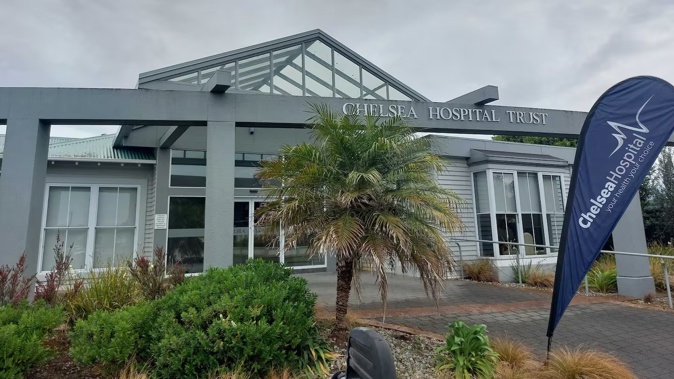
Doctors performing surgery on a high-risk patient in Gisborne were not aware of health information that could have made the woman an unsuitable candidate for the operation.
Janet Roberta Milner died, aged 50, at Waikato Hospital on July 18, 2021, days after she had undergone bariatric surgery in the form of a laparoscopic sleeve gastrectomy stomach removal at Chelsea Private Hospital in Gisborne.
Laparoscopic sleeve gastrectomy is keyhole surgery where the bulk of the stomach is removed, leaving a slender “sleeve” of stomach in place.
It makes a person feel full with only a small amount of food by physically restricting the amount the person can eat at any one time.
Coroner Bruce Hesketh, in his findings released today, said Milner was “not an appropriate candidate for bariatric surgery” in view of her significant comorbidities, extremely high BMI (body mass index), mixed cardiac disease and having a mechanical heart valve that was incorrectly identified to both the surgeon and anaesthetist.
“Had they known, I am satisfied that a different post-operative care plan would have been arranged.”
Private surgery sought
Milner had moved back from Christchurch to her birthplace of Gisborne in 2018.
She consulted with her GP, Dr Mark Devcich of Waikohu Health Centre, in December 2020 about laparoscopic sleeve gastrectomy surgery.
Devcich recorded that she fell just outside of the criteria for being accepted for the surgery in the public health system.
Milner weighed 167kg at the time of her death. Her BMI was recorded as 60kg/sq m. Obesity is defined as a BMI above 30. Severe or extreme obesity is any BMI over 40.
She decided to have the surgery privately and made an appointment with Peter Stiven, a general, laparoscopic and upper GI Surgeon and endoscopist in Gisborne, after consulting with John Fleischl, a general, laparoscopic and bariatric surgeon in Hastings.
A letter from Fleischl, a referral letter from Dr Devcich and Milner herself in her consultation with Stiven all incorrectly stated her mechanical heart valve was an aortic valve.
“I am satisfied the weakness in the chain of these events was Dr Devcich not reviewing his notes properly and Ms Milner providing Mr Fleischl the incorrect description of her heart valve,” Coroner Hesketh wrote.
“Despite the lack of fixed rules around referrals, this case is a reminder of the importance of any medical professional reviewing the past medical history of a patient to ensure a full medical history is recorded.”
Coroner Hesketh said the knowledge of the type of valve would have had “direct bearing” upon the post-operative care to be administered.
He also said a cardiologist had reviewed Milner in 2018, in Christchurch, before she returned to Gisborne.
“Dr Devcich should have reviewed his patient notes properly and referred to that cardiac report in his referral to Mr Stiven so that he and Dr Hirling [the anaesthetist] would be aware of all the risk factors (Dr Devcich accepts this adverse comment).
“Given the plan Mr Stiven had in terms of Ms Milner’s surgery and recovery and now being aware of the true extent of her past medical history, I am not satisfied Janet Milner was an appropriate candidate for the surgery on 14 July 2021 in terms of that plan.
“That is not a criticism of either Mr Stiven or Dr Hirling, they did not know Ms Milner was supporting a Mitral valve.”
Lack of record-keeping ‘unacceptable practice’
Milner had her surgery at Chelsea Hospital in Gisborne on July 14, 2021 and no issues were apparent the day after.
The coroner was satisfied Chelsea Hospital staff were all experienced in laparoscopic sleeve gastrectomy surgery and care.
Chelsea Hospital had been offering the surgery for over four years at that time and usually completed 12-14 procedures a year.
By the late afternoon of July 16, however, Milner’s heart rate became erratic and she experienced low oxygen levels.
“By 9pm, Ms Milner was complaining of a heaviness in her chest and was coughing up mucous,” Coroner Hesketh noted.
Following a medical review, Chelsea Hospital staff decided to transfer her to a higher level of care at Gisborne Hospital.
She was transferred to the emergency department (ED) at Gisborne Public Hospital at 11.55pm on July 16.
Coroner Hesketh was critical of the fact that no proper written record by nursing staff was kept during the afternoon and evening of her early warning scores, and Stiven did not record his directions when he reviewed Milner that afternoon.
“The record of Ms Milner’s post-operative care throughout the day and into the evening of 16 July 2021 was sub-optimal.
“No early warning score was documented over the period from 10am through to 9.30pm. Neither did Mr Stiven document his review of her in the progress notes when he attended upon his patient between 3-4pm. The nursing staff on duty had to rely on their recall of his directions, being to continue with cares and monitoring and to keep him informed.
“I am satisfied Ms Milner should have been escalated to a higher level of care [at] Gisborne Hospital earlier during the late afternoon/evening of 16 July 2021, and that Mr Stiven’s assessment to ‘continue with cares’ at that time was likely incorrect. I consider the lack [of] recording [of] his directions to have been unacceptable practice.”
Condition deteriorates
Milner’s condition had worsened after her arrival at Gisborne Hospital, where she was found to have low blood pressure and dropping oxygen levels.
“Her symptoms were suggestive of worsening respiratory impairment, possibly pneumonia, as well as a component of cardiac failure,” Coroner Hesketh wrote.
The Waikato intensive care unit (ICU) was contacted mid-morning of July 17 to organise a transfer and she was transferred later that day.
By that stage, her condition was very poor. She had a chest infection, was experiencing heart failure and had increasing kidney failure.
Milner died in the early hours of July 18.
A full post-mortem examination found Milner’s death was due to multi-organ failure as a result of intra-abdominal haemorrhage in the background of her recent surgery.
Coroner Hesketh was satisfied that the level of care Milner received at Gisborne Hospital was reasonable, given the circumstances. He assessed that the decision to move her to Waikato as soon as she was stable enough was correct.
Proper knowledge of cardiac health would have been a ‘game-changer’
Hesketh described Milner as a “high-risk medical patient with significant chronic cardiac disease”.
“Neither Mr Stiven nor Dr Hirling were aware of the true state of her cardiac health,” he said.
“Ms Milner had a Mitral valve in her heart which Mr Stiven was not aware of. Her post-operative care was not prepared for her true medical condition.
“As Mr Stiven has said himself, had he been aware it was a Mitral valve, it would have been a game-changer. Had Mr Stiven and Dr Hirling been alert to the correct mechanical valve, they would have planned her treatment recovery accordingly.”
Coroner Hesketh gave three recommendations.
He advised GPs preparing referral letters to a surgeon or other medical specialist to thoroughly review their patient’s notes and include as much relevant information about the patient’s past and present medical history as is relevant to the treatment sought.
He said Chelsea Hospital should remind staff and, if required, provide better training to them around the recording of early warning scores (EWS) to ensure specialists have the clearest picture of a patient’s treatment and recovery.
Finally, he said other specialists should record all their attendances, advice and directions into the patient’s notes to ensure a proper record of treatment and care is maintained.
In a statement, Chelsea Hospital said it “expresses its deepest sympathies to the whānau and friends of the late Ms Milner”.
“We have taken multiple steps to improve our service delivery since this event, including strengthening our admission processes to ensure that surgery in our hospital is as safe as possible.”
Take your Radio, Podcasts and Music with you









